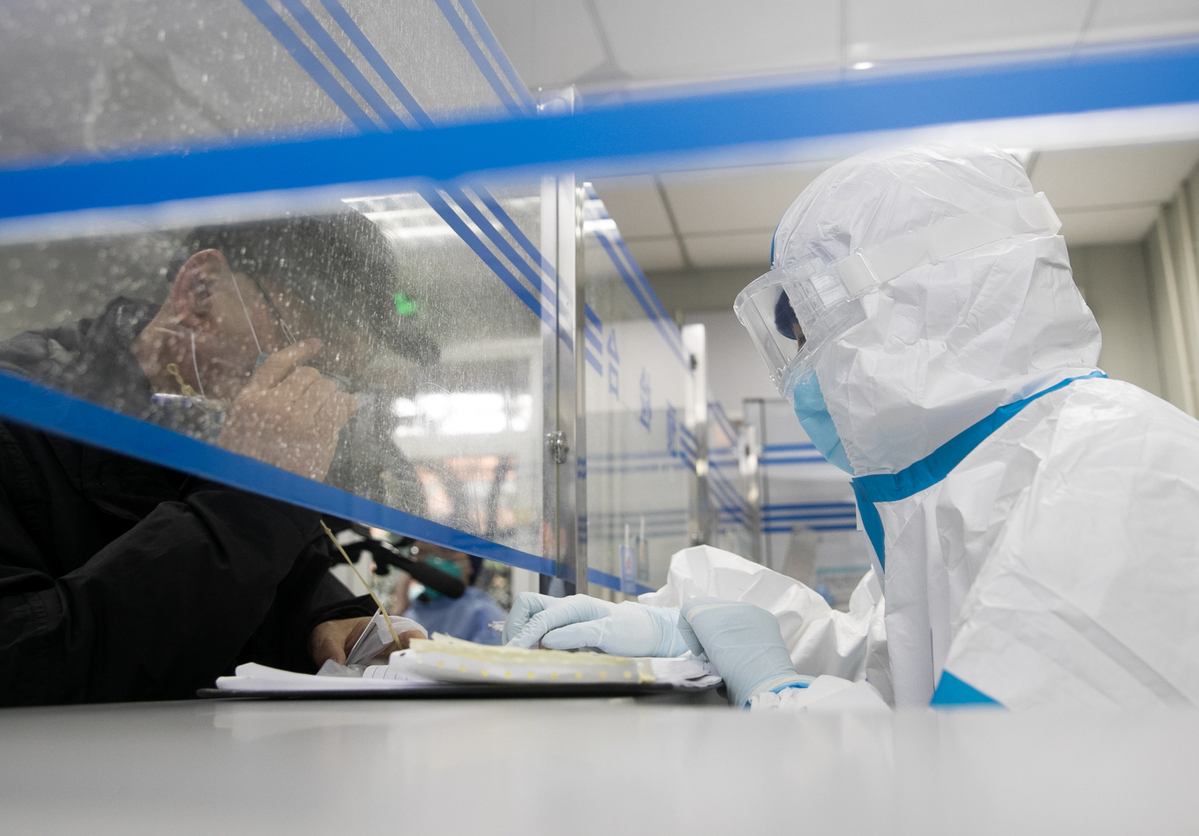CPPCC member enhances medical center proposal


Last year, Zhu Tongyu, a member of the country's top political advisory body, proposed building a strategic medical emergency center in the Yangtze River Delta.
During this year's two sessions-the annual meetings of the National People's Congress, China's top legislature, and the National Committee of the Chinese People's Political Consultative Conference, the top advisory body-Zhu upgraded his previous proposal to include the building of 10 such centers in megacities across China, each with a capacity of 3,000 to 5,000 beds and a reserve of critical medical supplies.
Zhu is director of the Shanghai Public Health Center, the only hospital designated to treat COVID-19 patients in the city, as well as a member of the 13th CPPCC National Committee.
"It's like a bastion to defend our biological security," he said, adding that with centers like the one in Shanghai, the government can respond faster when an epidemic like COVID-19 breaks out. "But what we have is far from enough."
The Shanghai center, in the city's suburban Jinshan district, has only 660 beds and 250 doctors, which Zhu said is insufficient for large outbreaks of contagious diseases.
"China is such a big country that it will inevitably be hit by epidemics, and we should not fight a war without advance preparation," he said.
Zhu wants these strategic centers to be similar to the Shanghai center but larger, with 1,500 beds during regular operation and 3,500 lots underground that can be used for parking in normal times but can also be converted to space for medical beds in three days.
"If a megacity has got thousands of people who have contracted contagious diseases, this kind of center can give other hospitals at least two weeks to prepare," he said.
Zhu has considered the financial burden of sustaining such centers. His answer is that they should also function as research and innovation hubs in the public health sector.
Besides 250 doctors, the Shanghai Public Health Center has 150 researchers. It has China's only bacteriophage medical research lab, which studies "bacteria eaters "that can fight "superbugs". Last year, the center discovered and named 21 new bacteria, Zhu said.
"Our investment in research and development has earned us a lot of rewards," Zhu said, adding that the center's technology and patents have raked in 300 million yuan ($42 million) this year.
Zhu's proposal garnered a lot of support from NPC deputies and CPPCC members during the two sessions.
Bian Huijie, a professor at the Air Force Medical University of the People's Liberation Army who is also a member of the CPPCC National Committee, said she is also going to propose building public health centers in cities in China.
NPC deputy Wang Wei, deputy general manager of Shanghai Home Textile, proposed that the government establish a national emergency supply system and combine private and State reserves to stock tents, masks, food and medicine.
- Survivor of Japan's 'comfort women' system dies, leaving 8 on Chinese mainland
- 19 foreigners among China's first officially certified hotpot chefs
- China approves new lunar sample research applications from institutions
- Fishing, Hunting festival opens at Chagan Lake in Jilin
- A glimpse of Xi's global insights through maxims quoted in 2024
- China's 'Ice City' cracks down on ticket scalping in winter tourism




































